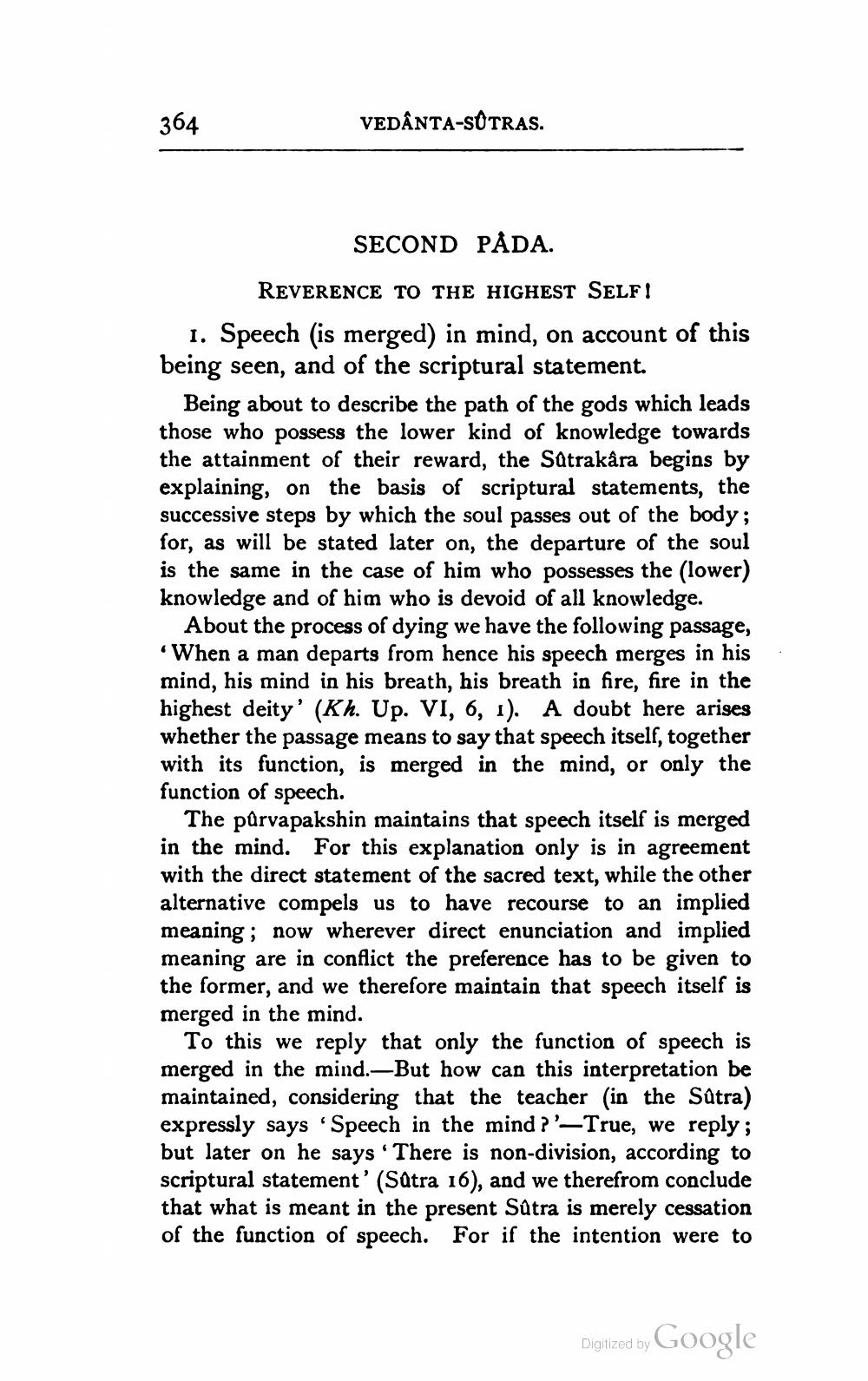________________
364
VEDÂNTA-SÓTRAS.
SECOND PÅDA. REVERENCE TO THE HIGHEST SELF! 1. Speech (is merged) in mind, on account of this being seen, and of the scriptural statement.
Being about to describe the path of the gods which leads those who possess the lower kind of knowledge towards the attainment of their reward, the Satrakâra begins by explaining, on the basis of scriptural statements, the successive steps by which the soul passes out of the body; for, as will be stated later on, the departure of the soul is the same in the case of him who possesses the (lower) knowledge and of him who is devoid of all knowledge.
About the process of dying we have the following passage, “When a man departs from hence his speech merges in his mind, his mind in his breath, his breath in fire, fire in the highest deity' (Kh. Up. VI, 6, 1). A doubt here arises whether the passage means to say that speech itself, together with its function, is merged in the mind, or only the function of speech.
The purvapakshin maintains that speech itself is merged in the mind. For this explanation only is in agreement with the direct statement of the sacred text, while the other alternative compels us to have recourse to an implied meaning ; now wherever direct enunciation and implied meaning are in conflict the preference has to be given to the former, and we therefore maintain that speech itself is merged in the mind.
To this we reply that only the function of speech is merged in the mind.—But how can this interpretation be maintained, considering that the teacher in the Sutra) expressly says 'Speech in the mind ?'-True, we reply; but later on he says 'There is non-division, according to scriptural statement' (Sutra 16), and we therefrom conclude that what is meant in the present Sútra is merely cessation of the function of speech. For if the intention were to
Digitized by
Digitized by Google




